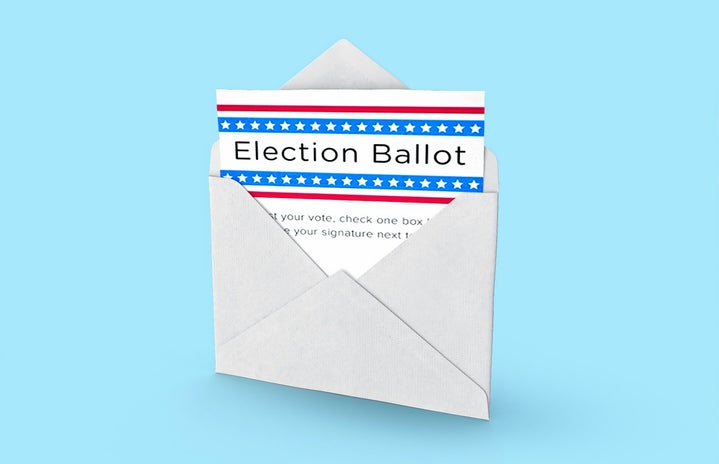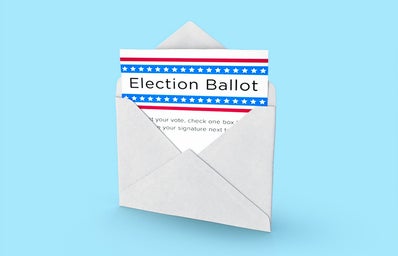The best voter is the educated one. This year’s midterm election will be on November 8.
In California, voters will have seven ballot propositions, their House Representative, US Senator, state constitutional offices, like Governor, State legislature, and local races like Mayoral or city council on their ballot.
In recent years, Generation Z has gotten more involved with politics. However, youth voter turnout is still low. And voting in a midterm election is just as important as in a presidential election, especially for local races that will create laws impacting your daily life.
How do I register to vote?
First, it’s important to acknowledge if you are eligible to vote or not. Some state laws may defer, but in California, you must be a resident of California, a US citizen, and 18 years old or older on election day to vote.
While October 24 was the last to register to receive your ballot by mail for California, eligible voters can still vote by same-day or conditional registration.
In California, individual counties overview our elections. If you already registered to vote by the October 24 deadline, your ballot has been delivered to your address. If you missed the deadline or have changed your address and need to be re-registered, any vote center or your county’s Registrar of Voters office can assist in those services.
If you are voting by mail, your ballot must be returned postmarked by election day, which is November 8. If you are voting in person or want to drop off your ballot in person, polls will be open until 8 p.m. on election day.
What offices will be on my ballot?
All House Representatives will be going up for election this season due to their two-year terms. To learn more about who is running for election in your Congressional district for House Representative, visit CalMatters’ voter guide and enter your address.
Additional offices, but are not limited to, are the U.S.Senate and California Governor.
1/3 of U.S. Senator seats are up for election each election year. This year, one of those includes one of California’s seats. The candidates are Democrat Alex Padilla, the current senator, and Republican Mark Meuser, a constitutional attorney, according to CalMatters.
Padilla and Meuser contrast in many areas of policy.
Padilla is a supporter of abortion rights, Medicare, and universal basic income, and has a focus on climate change and healthcare prices, according to CalMatters.
Meuser, on the other hand, opposes abortion and supports the overrule of Roe v. Wade. However, he has stated that he is not in favor of some enacting a nationwide ban as he believes it would be decided by the states, according to the San Diego Union-Tribune.
As for the state governor, the incumbent Gavin Newsom (D) will be running against Brian Dahle (R).
In the only California Gubernatorial debate in late October, Newsom and Dahle discussed homelessness, gas prices, and abortion rights. The full debate can be watched on KQED’s Youtube.
Image featuring Newsom and Dahle at the Gubernatorial debate. Image from CalMatters.
What about the propositions?
California will have a record low of only seven ballot propositions this election. Ballot measures, or propositions, allow California voters to propose laws and constitutional amendments without requiring approval from the Governor or the state legislature.
Prop 1
Proposition one follows the overturn of Roe v. Wade by the US Supreme Court this summer. While there are currently laws passed in California to protect abortion, this prop would enshrine the right to reproductive freedom in the California State Constitution.
Prop 1 is supported by Governor Newsom and is not expected to have a financial impact on Californias. A vote for YES would amend the state’s constitution to protect the right to reproductive freedom. A vote for NO would not change the constitution.
To learn more about prop 1, visit the Secretary of State’s voter guide.
Prop 26
A vote YES on prop 26 would legalize sports betting on the American Indian Lands Initiative. A vote NO would continue to prohibit sports betting in tribal casinos in California.
To learn more about prop 26, visit the Secretary of State’s voter guide.
Prop 27
A vote YES would allow Native American tribes to operate online and mobile sports betting. A vote NO would mean that sports betting would remain illegal in California.
To learn more about prop 27, visit the Secretary of State’s voter guide.
Prop 28
Prop 28 would guarantee funding for arts and music education. A common misconception about this prop is that it would increase taxes, which is false. This prop would ensure that 1% of current taxes would go directly to arts and music education for public schools.
A vote YES would approve additional funds for arts education in public schools. A vote NO would mean that funding for art education would have to depend on state and local budget decisions.
To learn more about prop 28, visit the Secretary of State’s voter guide.
Prop 29
A vote YES on prop 29 would require a medical professional to be present during treatment hours at dialysis clinics. A vote NO would not require a medical professional during treatment hours.
To learn more about prop 29, visit the Secretary of State’s voter guide.
Prop 30
A vote YES on prop 30 would increase taxes for those with a personal income over $2 million to fund zero-emissions vehicle programs, vehicle charging stations, and wildfire prevention. A vote NO means no change would be made.
To learn more about prop 30, visit the Secretary of State’s voter guide.
Prop 31
Prop 31 was placed on the ballot through petition signatures. Prop 31 is a referendum on a law that prohibits the sale of certain flavored tobacco in 2020.
A vote YES means stores and vending machines can not sell flavored tobacco. A vote NO means stores and vending machines would be allowed to sell flavored tobacco.
To learn more about prop 31, visit the Secretary of State’s voter guide.
For additional information on local, state, and federal races that you are eligible to vote in, visit Voter’s Edge (a nonpartisan online guide) for more information.
Are you ready to vote? Let us know on our Instagram @HerCampusSJSU!


